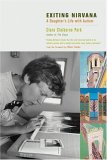Summary | Excerpt | Reviews | Readalikes | Genres & Themes | Author Bio

A Daughter's Life with Autism
by Clara Claiborne Park
These conceptualizations were not available when Jessy circled her spot; now we see how well they explain the challenges she, and we, lived with. For overwhelmingly these challenges were social. As she grew, we were to discover how little trouble Jessy had with sequencing, cause and effect, induction and deduction. But "joint attention"? It is such a simple thing. A mother and a baby look at a picture book together. The mother points; soon the baby will too. Or they play clap hands or peekaboo; mother and baby laugh. Yet learning cannot take place without these "critical features of human thinking." We learn by imitation; imitation is a social act. It does not occur in Nirvana, where there is neither need nor opportunity for joint attention.
By the time Jessy was six and seven she could put two or three words together; she heard, even understood a little of what we said to her. How could we teach her to understand more, speak more intelligibly? Further, how could we motivate her to do the simple activities it became clear she was capable of doing? She could count, even subtract; the washcloth anxiety proved that.
She could notice the slightest deviation from a pattern. Clearly she could set the table. But why should she? To imitate her sisters? To please her mother? Such natural, social motivators are meaningless without "attribution of beliefs, desires, and emotions to others," without a "theory of mind." At two and a half she had drawn a closed circle, an X, even, astonishingly, a J. Once; six months later she wouldn't even pick up a crayon. Why should she? Why should anybody do anything? She could distinguish the most subtle shades of color; she did not utter her first adjectives until six, but when they came they were not the common-place "bad" or "nice," laden with social value. Rather (of two VW's side by side) she chirped, cheerfully, positively, correctly, "Peacock BLUE car, peacock GREEN car!" Yet later, after I had lured her back into drawing, she would take the first crayon available. Yellow on white? Why not? She drew for her own purposes, not to be visible to others. Sometimes she would even cut up what she had drawn, to join the other three-quarter-inch squares in her sifting carton.
Colors were easy. Numbers, even arithmetical processes, were easy. They were there in her head already, waiting for names. The year she turned nine we sat together as I filled sheet after sheet with rows of renditions of valentine heart-candies, things she knew and liked. They could be counted, grouped in twos, threes...fives...nines...which could themselves be grouped: three groups of nine heart-candies clearly made twenty-seven. Or I drew circles and divided them into halves, thirds, fourths, fifths --fractions! Or I added pentagons and hexagons to the triangles and squares she'd recognized before she was three. With her still rudimentary speech she asked for the series to continue: "Seven sides? Eight sides?" Heptagon, octagon, dodecagon -- she learned those words as soon as I spoke them. We could share attention when I entered her world, an abstract world of order, repetition, all that represented intelligibility, security, in the bewilderment of talk she could not understand, body language she could not read, social clues she could not interpret. Two years later she would spend hour upon hour in solitary, not to say compulsive, multiplying and dividing. We watched her cover sheet after sheet with divisions by 7, 11, 13, 17, 19, identifying primes and prime factors, happy in a world of number.
Jessy still retains her capacity for autistic delight. What makes her happy today? Once she'd exult over her discovery that "70003 is a prime!" Then numbers became what she calls "too good," so good that she would speak them only in whispers, or refuse to say them at all. Then her interest subsided; other things evoked her secret smile. Stars. Rainbows. Clouds. Weather phenomena. Quartz heaters. Odometers. Streetlamps. A strange procession of obsessions, for a year or two eliciting an intensity of emotion approaching ecstasy, then subsiding into mere pleasure. Wordless once, now a word, a phrase, could thrill her. "Asteroid explosion," "digital fluorescent number change." Recently it's anything to do with banks, checks, above all, fees. "There's a fee in feeling! And feet!" We know that special smile, that faraway gaze. But don't, don't ask her, "Why are you smiling?" The phrase itself (and there are others) invites desolation, the banshee wail; we don't know why. Was she punished at school for daydreaming? Does she resent the invasion of her secret world? She won't say. Could she if she would?
Copyright © 2001 by Clara Claiborne Park




Our wisdom comes from our experience, and our experience comes from our foolishness
Click Here to find out who said this, as well as discovering other famous literary quotes!
Your guide toexceptional books
BookBrowse seeks out and recommends the best in contemporary fiction and nonfiction—books that not only engage and entertain but also deepen our understanding of ourselves and the world around us.